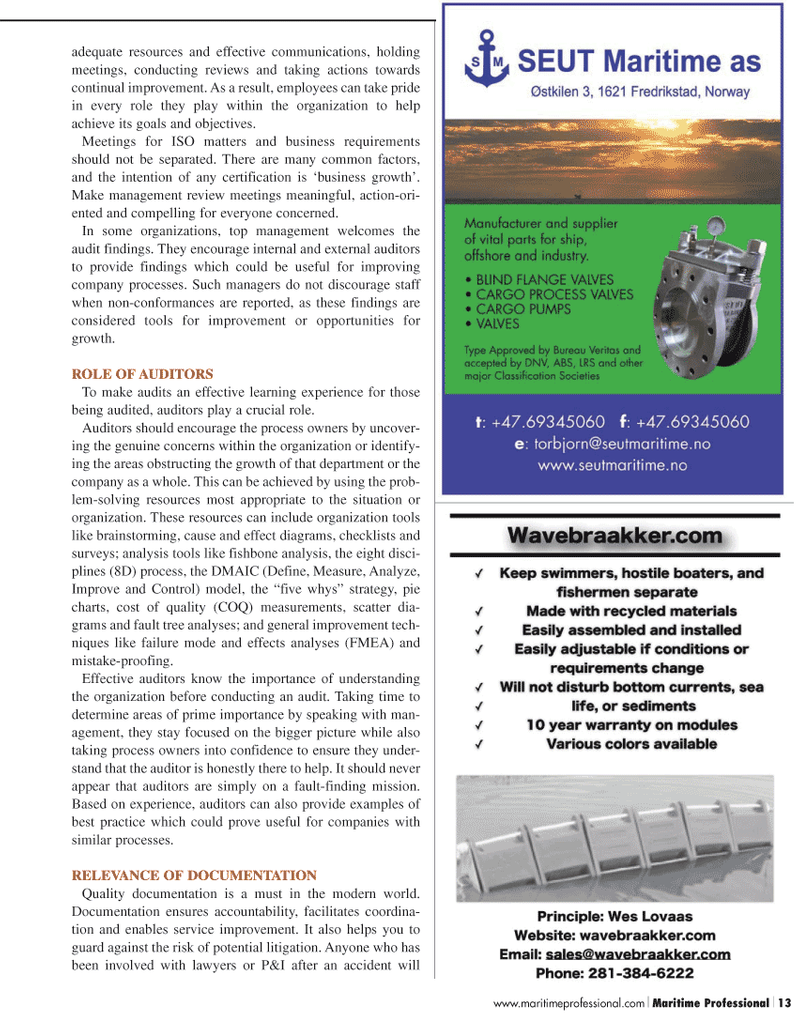
Page 13: of Maritime Logistics Professional Magazine (Q2 2011)
Energy Transportation
Read this page in Pdf, Flash or Html5 edition of Q2 2011 Maritime Logistics Professional Magazine
www.maritimeprofessional.com Maritime Professional 13 adequate resources and effective communications, holding meetings, conducting reviews and taking actions towards continual improvement. As a result, employees can take pride in every role they play within the organization to help achieve its goals and objectives.
Meetings for ISO matters and business requirements should not be separated. There are many common factors, and the intention of any certification is ‘business growth’.
Make management review meetings meaningful, action-ori- ented and compelling for everyone concerned.
In some organizations, top management welcomes the audit findings. They encourage internal and external auditors to provide findings which could be useful for improving company processes. Such managers do not discourage staff when non-conformances are reported, as these findings are considered tools for improvement or opportunities for growth.
ROLE OF AUDITORS
To make audits an effective learning experience for those being audited, auditors play a crucial role.
Auditors should encourage the process owners by uncover- ing the genuine concerns within the organization or identify- ing the areas obstructing the growth of that department or the company as a whole. This can be achieved by using the prob- lem-solving resources most appropriate to the situation or organization. These resources can include organization tools like brainstorming, cause and effect diagrams, checklists and surveys; analysis tools like fishbone analysis, the eight disci- plines (8D) process, the DMAIC (Define, Measure, Analyze,
Improve and Control) model, the “five whys” strategy, pie charts, cost of quality (COQ) measurements, scatter dia- grams and fault tree analyses; and general improvement tech- niques like failure mode and effects analyses (FMEA) and mistake-proofing.
Effective auditors know the importance of understanding the organization before conducting an audit. Taking time to determine areas of prime importance by speaking with man- agement, they stay focused on the bigger picture while also taking process owners into confidence to ensure they under- stand that the auditor is honestly there to help. It should never appear that auditors are simply on a fault-finding mission.
Based on experience, auditors can also provide examples of best practice which could prove useful for companies with similar processes.
RELEVANCE OF DOCUMENTATION
Quality documentation is a must in the modern world.
Documentation ensures accountability, facilitates coordina- tion and enables service improvement. It also helps you to guard against the risk of potential litigation. Anyone who has been involved with lawyers or P&I after an accident will

 12
12

 14
14
